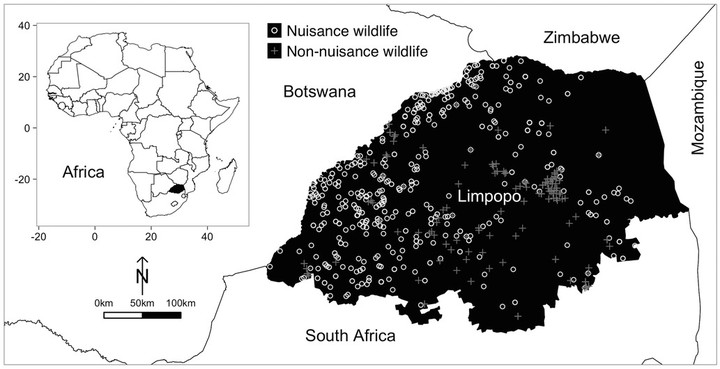
Abstract
The devolution of user rights of wildlife in southern Africa has led to a widespread land-use shift from livestock farming to game ranching. The economic advantages of game ranching over livestock farming are significant, but so too are the risks associated with breeding financially valuable game where free-ranging wildlife pose a credible threat. Here, we assessed whether the conservation potential of game ranching, and a decentralized approach to conservation more generally, may be undermined by an increase in human–wildlife conflict. We demonstrate that game rancher tolerance towards free-ranging wildlife has significantly decreased as the game ranching industry has evolved. Our findings reveal a conflict of interest between wealth and wildlife conservation resulting from local decision making in the absence of adequate centralized governance and evidence-based best practice. As a fundamental pillar of devolution-based natural resource management, game ranching proves an important mechanism for economic growth, albeit at a significant cost to conservation.